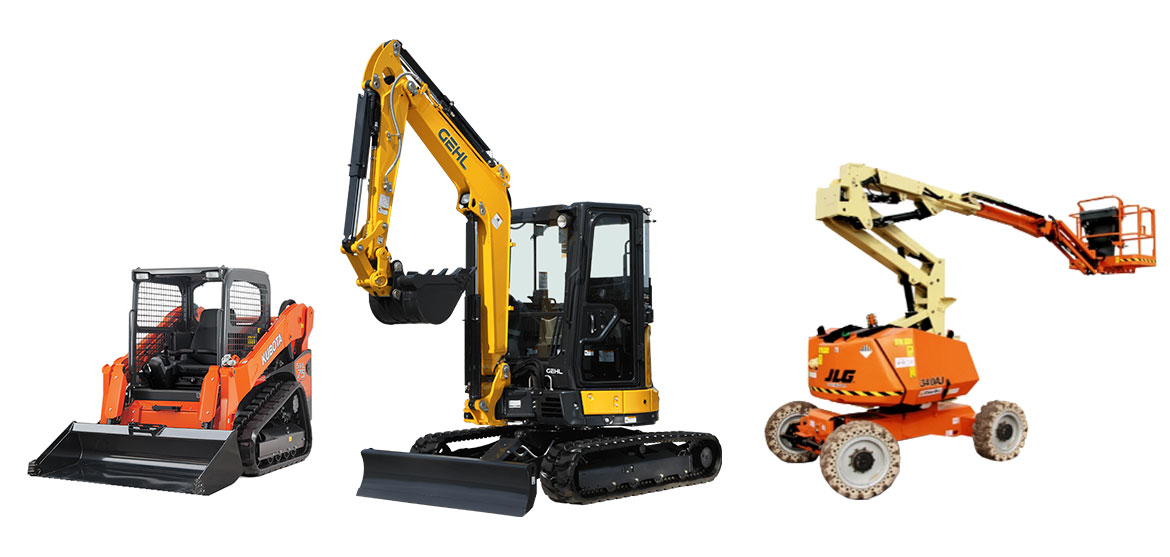Dozer Rental: Powerful Earthmoving Tools for Your Construction Needs
Dozer Rental: Powerful Earthmoving Tools for Your Construction Needs
Blog Article
Maximize Your Budget Plan by Recognizing the Prices Connected With Building Tools Leasings
Recognizing the full scope of costs associated with building and construction devices services is vital for optimizing your budget plan. What strategies can be used to properly take care of these prices and guarantee a more reliable rental experience?
Summary of Rental Costs
When considering building and construction devices services, recognizing the connected expenses is paramount for reliable budgeting and job planning. Rental expenses can differ considerably based on numerous aspects, including tools kind, duration of rental, and location. The preliminary rental cost typically shows the devices's market demand and its connected operational capacities, influencing the general expenditure.
In addition to the base rental price, ancillary costs may emerge, such as transportation fees, fuel surcharges, and upkeep fees. It is necessary to make up these extra expenses to accurately evaluate the complete cost of leasing devices. The rental period can impact pricing; longer leasings may qualify for discounted prices, while short-term rentals might incur greater day-to-day charges.

Malfunction of Rental Rates
An extensive understanding of rental rates is crucial for service providers and task supervisors aiming to optimize their budget plans. Rental prices for construction devices typically are composed of several parts, consisting of base rates, time-based costs, and use charges.
Base rates are the core charges related to the service of the tools, usually identified by the type and size of the machinery. These rates can differ significantly, affected by variables such as equipment demand, availability, and regional market patterns. Time-based fees, which may be daily, weekly, or monthly, offer to suit various task timelines and rental durations.
Additionally, rental prices may consist of usage charges, which apply when devices is utilized beyond a defined limit, ensuring that the rental company can make up deterioration. Seasonal demand changes can also affect rental prices, with peak building and construction seasons usually commanding higher costs.
Additionally, recognizing the rental firm's plans regarding maintenance and insurance coverage can give more understanding into the general expense framework. By assessing these elements, specialists can make educated decisions, ensuring the selection of rental devices straightens with both task needs and spending plan constraints.
Extra Costs to Take Into Consideration
Understanding the complexities of additional costs is important for service providers to handle their overall leasing expenditures effectively. Past the standard rental rates, various supplemental fees can dramatically influence the complete cost of tools leasing. These fees commonly consist of delivery and pickup fees, which can vary based upon distance and logistics associated with transferring the equipment to and from the job site.
Furthermore, some rental companies may enforce gas additional charges if the tools is returned with less fuel than when rented out. It is likewise essential to be mindful of look at here potential cleaning charges, particularly for specific tools that needs thorough maintenance after usage.

Thoroughly reviewing the rental contract and making clear these additional charges in advance can assist specialists make certain and stay clear of unanticipated expenses that budget plans remain undamaged throughout the job lifecycle.
Upkeep and Fixing Expenses
Routine upkeep and fixing expenditures are typically overlooked variables that can considerably influence the overall price of building tools services. When leasing devices, it is essential to take into consideration not only the rental fees however also the potential prices related to maintaining the machinery in ideal operating problem.
Several rental companies include basic maintenance as component of the rental arrangement; however, more unexpected break downs or considerable repairs can lead to extra expenditures. It's necessary to examine the rental agreement thoroughly to comprehend what upkeep solutions are covered and what responsibilities fall on the renter.
Additionally, devices that is not well-maintained can bring about inadequacies on duty website, possibly causing hold-ups and boosting project expenses. To alleviate these dangers, it is suggested to conduct regular evaluations and maintain open interaction with the rental provider regarding any issues that emerge during use.
Insurance Policy and Liability Prices
Insurance coverage and responsibility prices are critical parts that can substantially affect the general cost of building and construction devices leasings (forklift rental). These costs make certain that both the rental company and the client are protected from possible monetary losses arising from accidents, damages, or burglary during the rental period

Furthermore, customers must be mindful of any deductibles or exclusions in the insurance plan, as these can affect potential out-of-pocket expenses. Comprehending the terms and problems of any type of insurance protection is important to avoid unanticipated expenses. Eventually, budgeting for insurance and obligation expenses can assist ensure a smoother rental experience and shield against building scaffolding for sale economic dangers connected with construction jobs.
Verdict
To conclude, a thorough understanding of the prices related to building and construction devices rentals is necessary for effective budget monitoring. By examining rental rates, additional charges, maintenance costs, and insurance policy individuals, needs and organizations can minimize unforeseen expenses. This tactical technique not just improves cost-effectiveness but additionally makes certain that additional reading jobs proceed efficiently and effectively. Eventually, notified decision-making pertaining to tools leasings contributes to the general success of construction endeavors.
Rental costs can vary substantially based on a number of factors, consisting of tools type, period of service, and place (boom lift rental). The rental duration can impact pricing; longer services might certify for affordable prices, while short-term rentals may incur higher everyday charges
By conducting extensive research study and involving with credible rental firms, professionals can properly navigate the complexities of rental rates, ultimately optimizing their monetary sources.
Beyond the conventional rental prices, numerous auxiliary charges can dramatically impact the complete price of devices leasing. Rental companies usually give obligation insurance policy that covers injuries to 3rd parties or damages to residential property, while devices damage insurance can cover the price of repair work or replacement if the rented devices is damaged.
Report this page